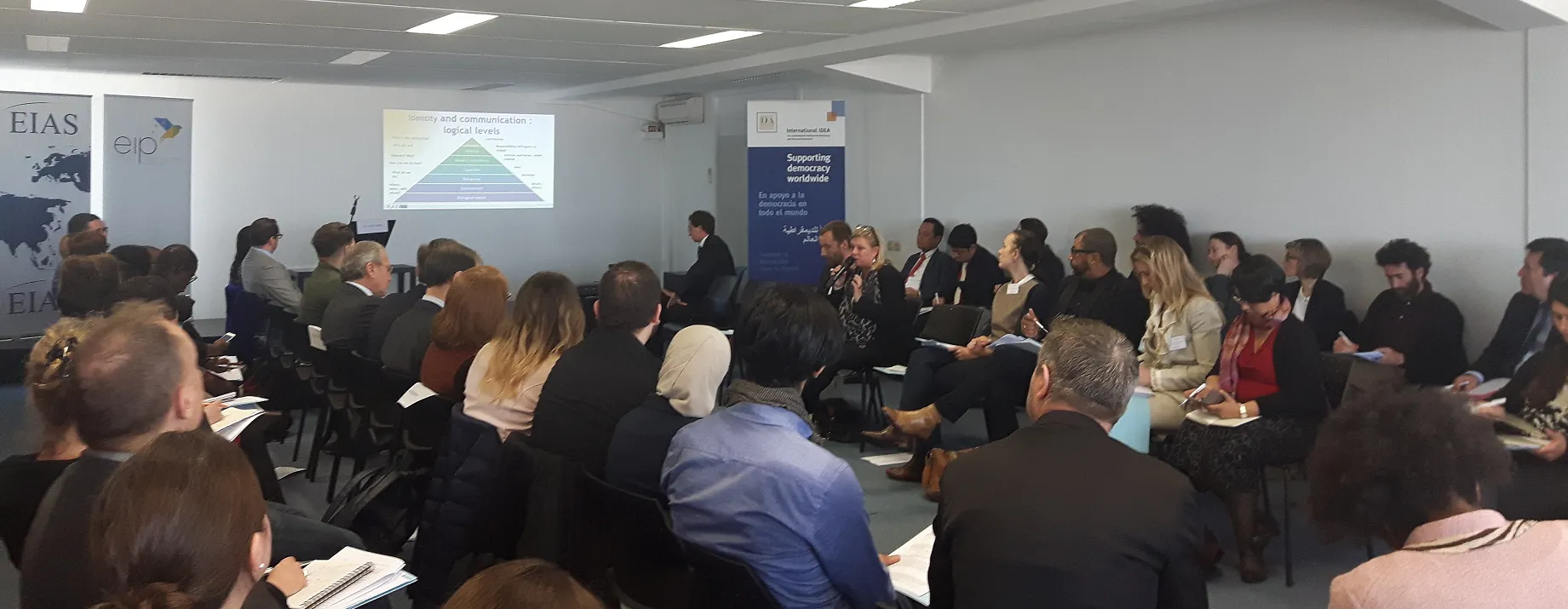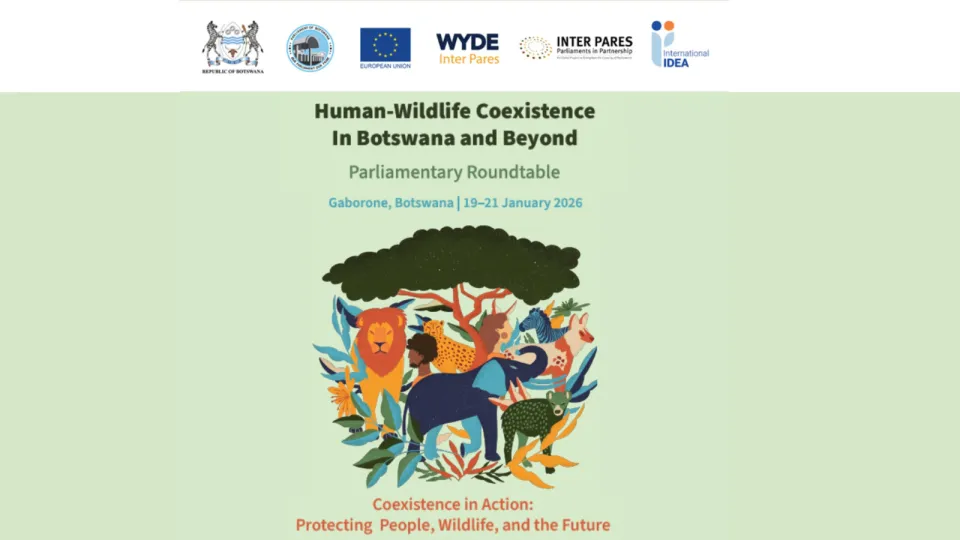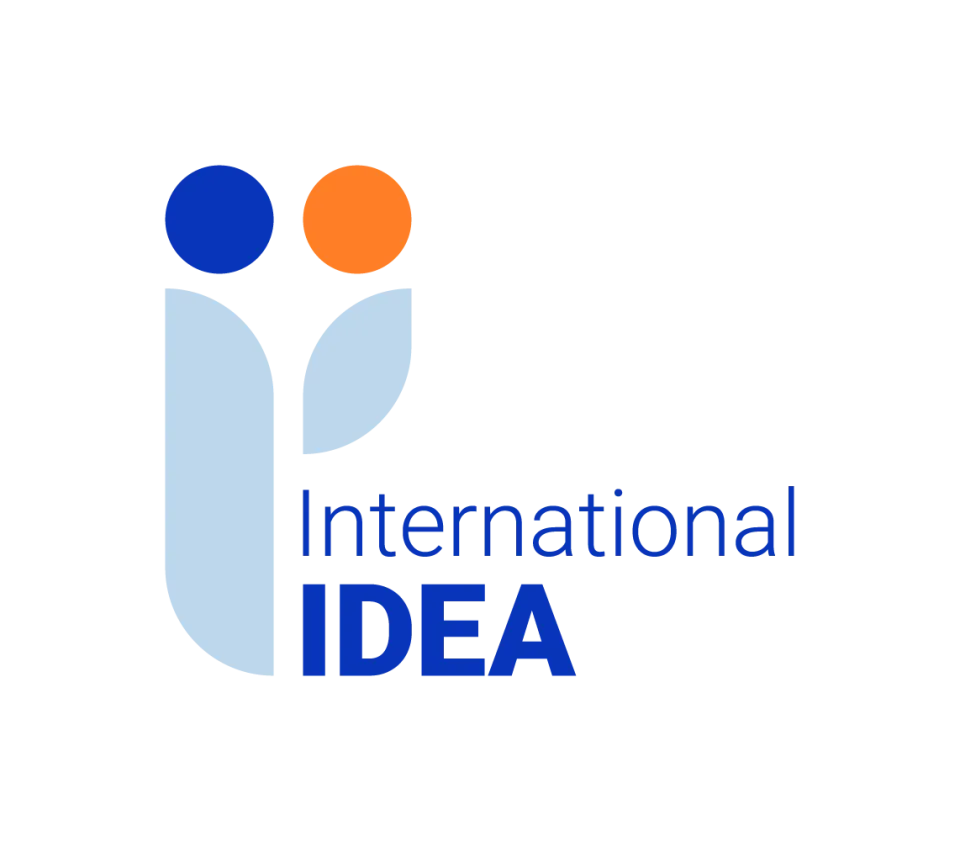International IDEA discusses civic education, integration and de-radicalization for improved policies

The Office of International IDEA to the European Union (EUO), with the support of the Canadian Mission to the European Union and in collaboration with the European Institute for Peace (EIP), WeCitizens and the European Institute for Asian Studies (EIAS), organized a Roundtable in Brussels on 23 March 2017 entitled, "Towards constructive citizenship through integration, civic education and inter-generational dialogue".
The programme included speakers from various backgrounds with expertise in the field of the promotion of civic education, integration and the prevention of radicalization. More than 60 participants discussed and assessed the scope of instruments available to education providers in the aforementioned fields, and made policy proposals for an improved policy framework.
Active citizenship in the context of a multicultural society
Societies and democratic frameworks have changed during the last decades, and some recent developments resulted in an awareness of the need for civic education. Citizenship does not only refer to the acquisition of specific knowledge, but also implies more fundamentally the acquisition of social skills, values, attitudes, and critical understanding. Societal challenges such as mass immigration, multiculturalism, unemployment, shifts in shared values, multi-layered identities, loss of traditional reference structures, and the influence of radical ideologies have complicated the transmission of these capacities.
Developing a European framework in support of the Member States
With regard to the European Union (EU), some meaningful policy initiatives have been taken within the context of limited EU competence in educational matters. Despite the attention given to civic education within its borders by the EU, a framework for structural support to member states is lacking. Also, the EU will have to reach out to the youth with more adequate messages—currently, the vision of Europe is not shared by the youth, and they do not feel concerned by the EU project. Less quantity but more quality is one of the solution to overcome apathy from the youth.
Main challenges for places of learning and civic education actors in Belgium
The regulatory framework for civic education in schools is different in the Flemish, French and German speaking communities in Belgium, including to which extent it is a compulsory part of the curriculum. In practice, challenges with regard to civic education vary considerably, but representatives concerned with this issue claim that schools lack the instruments to cope effectively. A strong structure would imply the definition of targets, content, required expertise, training for teachers, allocation of funds, and the continuous sharing of information on tools available to schools.
Fragile youth and the Molenbeek[1] situation
For young people in fragile contexts, critical attitudes towards state and politics risk sliding into distrust and rejection of authority at multiple levels and institutions. According to a broad social survey conducted by the European Institute of Peace (EIP) in Molenbeek, unemployment, incivilities, and ineffective education are at the core concerns of young people, rather than security and radicalization. Yet, some of Molenbeek's young people feel attracted by radical discourse due to frustration and geopolitical disappointment. For young people to embrace constructive citizenship, it is necessary to find more and credible coaches and role models, and to ensure that young people can rely on a new social structure. Talent development is another useful angle to embark upon citizenship activation, and to commence at the earliest possible age.
Governance perspectives
Representatives of the City of Vilvoorde[2] and of the Flemish Community provided an insight into instruments and challenges of both policy levels (municipality and regional). At the local level, authorities work with the broad definition of active citizenship, including active participation in the local social and political life. Priorities for constructive citizenship are participation, improved civic education in schools, partnerships, funding, attractive messages and content, cultural identity, and trust in democratic structures.
Themes for policy recommendations
The feeling of belonging to a group (identity) is key to stability and integration of young people. At the same time, they must learn to respect other groups. Common values and tolerance can be transmitted in schools, e.g. via philosophy courses and inter-generational dialogue.
By guaranteeing human and political rights, equality of citizens and the separation of powers, democracy provides a framework for a stable society and sustainable development for all. Awareness of civic rights and duties consolidates people’s trust in democracy. Citizenship includes the acquisition of ethical standards and practical means for active participation in democracy.
A number of policy proposals were made related to areas of participation in society, framework for civic education in schools, modalities for partnerships with civil society, funding instruments, attractive messages for youth, and the content of civic education.
Speakers:
Jean-Paul Pinon, Managing Director, WeCitizens
Karin Heremans, President of the Working Group Education, European Radicalization Awareness Network (RAN) and Director, Koninklijk Atheneum Antwerpen
Vincent Sterpin, Director, Institut Saint Louis Bruxelles schools
Catherine Van der Straeten, Head of Service, Prevention Division, City of Vilvoorde
Nadia Belkus, Project Officer Radicalization Awareness Raising, City of Vilvoorde
Mark Borremans, Expert in volunteering and participation at the Prevention Division, City of Vilvoorde
Delphine Michel, Programme Manager, European Institute of Peace (EIP)
Ann Dejaeghere, Policy Adviser, Flemish Ministry for Education and Training
Aziz Mimoun, Social worker and Creator of Molem Zap
Hassan Al Hissou, Belgium’s youngest consultant, founder of YouthTalks Foundation




